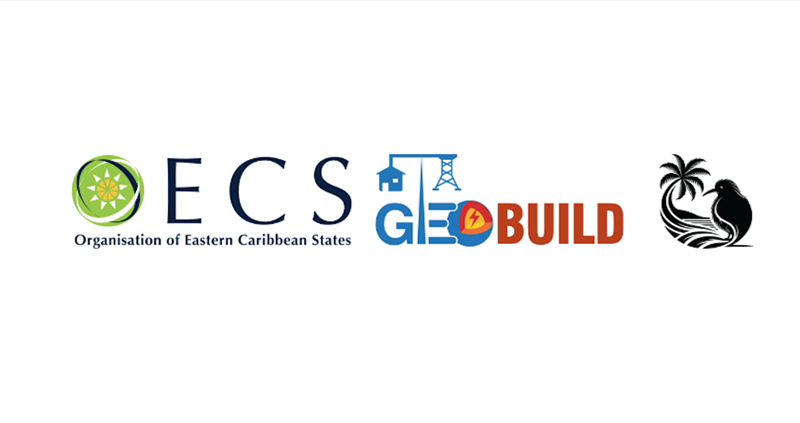New Zealand and the OECS Partner to Address Geothermal Energy Skills Deficit
The Organisation of Eastern Caribbean States (OECS) is on the cusp of a transformative shift in its energy landscape as the first geothermal power plant in the independent OECS nations nears completion in Dominica, with other Eastern Caribbean countries also advancing their geothermal projects. Recognizing the need to cultivate local expertise to manage this burgeoning industry, the OECS Commission, through its Geothermal Energy Capacity Building for Utilisation, Investment and Local Development (OECS GEOBUILD) Programme, has partnered with the Aotearoa New Zealand-Caribbean Facility for Renewable Energy (FRENZ). This collaboration marks a crucial step towards establishing a sustainable and self-sufficient geothermal energy sector within the region.
The collaboration between OECS GEOBUILD and FRENZ, supported by the New Zealand Ministry of Foreign Affairs and Trade, focuses on conducting a comprehensive needs assessment of the geothermal skills and training landscape across the OECS. This six-month initiative aims to create a detailed roadmap for developing sustainable capacity in geothermal energy development, ensuring that the region has the necessary expertise to manage its own resources effectively. This is particularly crucial given the varying stages of geothermal project development across the OECS, requiring a tailored approach to capacity building. The initiative prioritizes not just individual training, but the creation of a robust, region-wide ecosystem of knowledge and expertise, leveraging the skills of OECS nationals who have already received geothermal training in leading countries like Iceland.
This capacity-building initiative will delve into the entire geothermal development cycle, from the initial exploration phases to the operational management of geothermal power plants. Specific areas of focus include project management, engineering and technical skills, environmental and social monitoring, community engagement, and regulatory oversight. These diverse skill sets are essential for each OECS Member State to effectively harness the geothermal potential beneath their feet, following in the footsteps of Guadeloupe, the regional pioneer in geothermal energy generation. The ultimate goal is to reduce the region’s dependence on imported fossil fuels and foster energy independence through locally managed renewable energy sources.
FRENZ, implemented by Cowater International in partnership with JRG Energy and Elemental Group, brings New Zealand’s extensive experience in geothermal development to the OECS. The FRENZ team will leverage this expertise to develop a comprehensive action plan, providing a detailed framework for building sustainable capacity in the OECS geothermal energy sector. This initiative builds upon nearly a decade of New Zealand’s engagement in Caribbean geothermal development, solidifying a long-standing commitment to supporting the region’s transition to renewable energy. The resulting action plan will not only guide future capacity-building initiatives under the OECS GEOBUILD Programme but also ensure the long-term viability and sustainability of geothermal projects throughout the OECS.
The partnership between OECS GEOBUILD and FRENZ is particularly significant given the unique challenges faced by small island developing states in developing their geothermal workforce. The extended timelines associated with geothermal projects, coupled with limited opportunities for practical, hands-on experience, necessitate innovative approaches to skills development. This collaboration aims to identify creative strategies for building and maintaining expertise, even as projects progress at different paces across the various islands. The focus is on a holistic approach, recognizing the interconnectedness of technical skills, environmental considerations, community engagement, and regulatory frameworks in successful geothermal development.
New Zealand’s substantial experience in geothermal energy, spanning over six decades, provides a valuable model for the OECS. With twenty power plants across eight high-temperature fields generating approximately eight trillion watt-hours annually, geothermal resources contributed roughly 20% of New Zealand’s total electricity supply in 2022. Furthermore, renewable resources as a whole accounted for 87% of the country’s electricity generation, demonstrating the potential for significant reliance on renewable energy sources. This expertise, coupled with a deep understanding of the unique challenges faced by small island states, positions New Zealand as a valuable partner in the OECS’s geothermal journey. Dominica’s forthcoming geothermal power plant, set for completion in late 2025, represents a significant milestone in the region’s energy transition, following in the footsteps of Guadeloupe’s pioneering geothermal power generation, which has been operational for 38 years. This project, along with other ongoing initiatives, underscores the growing momentum behind geothermal energy development in the Eastern Caribbean.
Share this content:












Post Comment